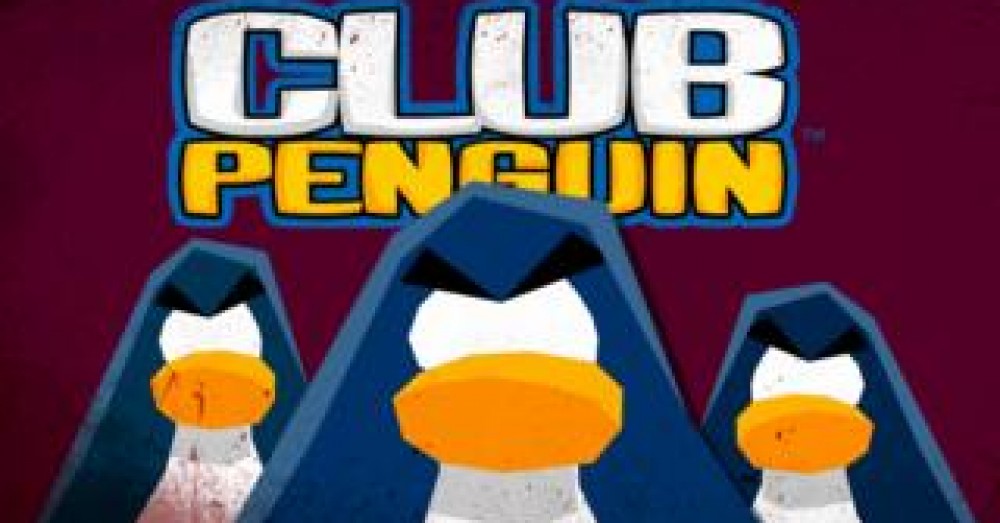Disney has ordered unauthorised copies of its Club Penguin game to close, after the BBC found children were being exposed to explicit messages.
Visits to fan-run Club Penguin Online surged during the coronavirus pandemic with more than a million new players.
But racist, homophobic, anti-Semitic and sexual messages flow freely on the unauthorised platform.
Disney said it was "appalled" by the website, and has ordered it to close or face legal action.
Club Penguin Online appeared to go offline on Friday afternoon.
One man involved in the site has been arrested on suspicion of possessing child abuse images.
Detectives say the man from London has been released on bail pending further inquiries.
Fan-operated clones
Disney's Club Penguin was one of the first social networks for children. Launched in 2005, it had more than 200 million players at its peak.
While anybody could join the original website, content filters and human moderators were employed to stop inappropriate messages or personal information from being shared.
But Disney closed the website in 2017.
Since then, unofficial clones of the website have been operated by fans. These private servers were launched using stolen or copied source code, and can easily be found by children searching the internet.
Club Penguin Online is the largest of the social network's unofficial clones. It says its popularity has exploded during the coronavirus pandemic and now has seven million registered players.
Penguin e-sex
The BBC set up an account on the English, Spanish and Portuguese versions of Club Penguin Online.
It found:
The BBC set up an account on the English, Spanish and Portuguese versions of Club Penguin Online.
It found:
- content filters designed to remove offensive language had been disabled on several servers, allowing swear words, homophobic slurs, anti-Semitism and racist messages to be posted publicly
- moderators were no longer removing racist content. One player invited the BBC to their igloo, which was decorated to spell out the n-word
- players were engaging in "penguin e-sex", sending and receiving explicit messages
- Disney's original game banned the sharing of personal details, but players on this cloned site are openly sharing Snapchat, Instagram and Discord account details.
A Zoom "meet-up" was also advertised and codes and passwords shared openly.
Although it is impossible to verify the age of users, many told the BBC they were teenagers, and there were children playing, too.
Kaden, 14, told the BBC there were areas of the game where it was safe to operate - but most players were in the unprotected "mature" sections.
He said the conversations he had seen made him extremely uncomfortable.
"Any kid can click on these mature sections and they just see all this inappropriate stuff," he said.
"I've seen people advertise strip club igloos, I've seen people ask for pimps. There's a lot of swearing on there and I've been asked a lot of crazy things. It's really put me off going on these mature servers."
Kaden's dad, Rick, told the BBC he had no idea what was happening in the game.
"I'm shocked. I thought that if he's on Club Penguin, then he's in a pretty safe place."
Another long-time Club Penguin fan, teenager Miranda, said the game had "gone from being family-friendly and fun to being monstrous".
Cold war
Club Penguin Online is the largest private server and uses Disney's branding.
One former staff member told the BBC the project had made about £9,000 through adverts, while most of the staff were young unpaid volunteers.
Competition between Club Penguin Online and other unofficial versions of the game had escalated in the past six months.
Server owners accused one another of hacking and harassment. One said it was a toxic community, "like Game of Thrones with penguins".
The Club Penguin Online volunteer claims he was encouraged to carry out attacks on rival servers when he was a minor.
"I would find out and publish [users'] personal details, like addresses, what they looked like, their family's information. I carried out DDoS (distributed denial of service attacks) on other users, and I would threaten people. The stuff that I did was similar to what happened to me, which affected my whole family, but I do feel really bad about it now."
A current Club Penguin Online staff member denied that this sort of activity was encouraged.
Some gamers think the toxic culture on some of these fan servers is a wider problem that needs addressing.
Gaming YouTuber Simi Adeshina, known online as Tamago2474, said: "These private server games are being run by people who aren't really in a position or qualified to do so. It's all good and well to have a community that you've built, but when you get to a certain size there's a point where you have to have to employ a degree of professionalism."
Cease and desist
Disney has issued copyright notices to all private server games, giving them a deadline to close down or face legal action.
In statement, it said said: "Child safety is a top priority for the Walt Disney Company and we are appalled by the allegations of criminal activity and abhorrent behaviour on this unauthorised website that is illegally using the Club Penguin brand and characters for its own purposes.
"We continue to enforce our rights against this, and other, unauthorised uses of the Club Penguin game."
Share This Post















